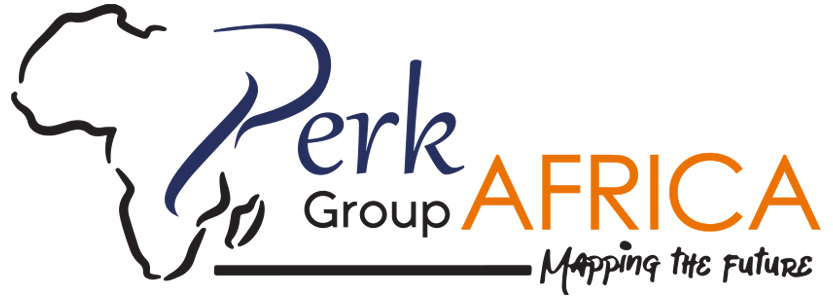
Training Course on Gender Analysis
Course Overview
Course Overview
Gender Analysis comprises of a series of tools and frameworks utilized to gather information around gender issues relevant to a specific sector. The analysis will analyze gender dynamics such as how men and women interact with each other, how they access resources, opportunities and limitations that apply to them.
The analysis utilizes various techniques aimed at understanding the root causes of gender inequality in a particular context and thereafter developing appropriate programs or policies to address the identified gender issues.
The training equips participants with the skills and knowledge to conduct a gender analysis. It is targeted towards project staff charged with formulating and implementing projects to help ensure that gender issues are systematically targeted and addressed at each stage of the project cycle.
Target Participants
Training on gender analysis is ideal for staff in development organizations, government institutions, and the private sector who have an interest in gender analysis with gender focused roles
Course objectives:
By attending the Gender Analysis training course you will be able to:
- Understand key gender concepts and gender analysis tools
- Understand the different gender analysis frameworks and their application
- Choose an appropriate gender analysis framework
- Conduct a gender analysis assessment
- Understand the role of gender analysis in mainstreaming gender
- Integrate gender into strategic and operational planning
Course Duration:
Online Training: 5 days (4hrs per day)
Classroom Training: 5 days (7hrs per day)
Module 1: Key Gender Concepts
- What is gender?
- Sex and gender
- Gender norms, perceptions, and expectations
- Gender roles
- Gender equity, gender equality, and gender gaps
- Gender-based violence
Module 2: Overview of Gender Mainstreaming in Projects
- What is gender mainstreaming?
- The need for gender mainstreaming in projects
- Guiding principles in gender mainstreaming
- The process of GM in a project lifecycle
Module 3: Introduction to Gender Analysis
- Key concepts in gender analysis
- Domains in gender analysis
- Gender analysis frameworks and their application
- Role of gender analysis in mainstreaming gender
Module 4: Introduction to Gender Analysis Frameworks
- Comparing gender frameworks
- Understanding the different purposes of the gender analysis frameworks
- Understanding the limitations of each gender analysis framework
- Choosing an appropriate framework
Module 5: Harvard Analytical Framework
- Background of the Framework
- Aims of the Framework
- Harvard Tool 1: The Activity Profile
- Harvard Tool 2: The Access and Control Profile - resources and benefit
- Harvard Tool 3: Influencing factors
- Harvard Tool 4: Checklist for Project-Cycle Analysis
(Case study and class discussion)
Module 6: People-Oriented Planning Framework
- Background of the Framework
- Aims of the Framework
- Components of the Framework
- POP Tool 1: Refugee Population Profile and Context Analysis
- POP Tool 2: The Activities Analysis
- POP Tool 3: Use and Control of Resources Analysis
(Case study and class discussion)
Module 7: Moser Framework
- Background of the Framework
- Aims of the Framework
- Components of the Framework
- Moser Tool 1: Gender roles identification triple role
- Moser Tool 2: Gender needs assessment
- Moser Tool 3: Disaggregating control of resources and decision-making within the household
- Moser Tool 4: Planning for balancing the triple role
- Moser Tool 5: Distinguishing between different aims in interventions: the
- WID/GAD Policy Matrix
- Moser Tool 6: Involving women, and gender-aware organizations and planners, in planning
(Case Study and Class Discussion)
Module 7: Gender Analysis Matrix (GAM) Framework
- Background of the Framework
- Aims of the Framework
- Components of the Framework
- GAM Tool 1: Analysis at four levels of society
- GAM Tool 2: Analysis of four kinds of impact
(Case study and class discussion)
Module 8: Womens Empowerment (Longwe) Framework
- Background of the Framework
- Aims of the Framework
- Components of the Framework
- Womens Empowerment Tool 1: Levels of equality
- Womens Empowerment Tool 2: Level of recognition of womens issues
(Case study and class discussion)
Module 9: Social Relations Approach
- Background of the Framework
- Aims of the Framework
- Components of the Framework
- Social Relations Approach Concept 1: Development as increasing human well-being
- Social Relations Approach Concept 2: Social relations
- Social Relations Approach Concept 3: Institutional analysis
- Social Relations Approach Concept 4: Institutional gender policies
- Social Relations Approach Concept 5: Immediate, underlying, and structural causes
(Case study and class discussion)
Module 10 Gender Analysis Methodology
- Data collection methods and tools
- Sampling methodology
- Data analysis
- Gender analysis report (Case Studies and discussion)
- Gender analysis validation and reflection workshop
Classroom Training Schedule
| Start Date | End Date | Location | Cost | Apply |
|---|---|---|---|---|
| Feb 09, 2026 | Feb 13, 2026 | Nairobi | $ 1200 | Register |
| Mar 16, 2026 | Mar 20, 2026 | Nairobi | $ 1200 | Register |
| Apr 20, 2026 | Apr 24, 2026 | Nairobi | $ 1200 | Register |
| May 25, 2026 | May 29, 2026 | Nairobi | $ 1200 | Register |
| Jun 29, 2026 | Jul 03, 2026 | Nairobi | $ 1200 | Register |
| Aug 03, 2026 | Aug 07, 2026 | Nairobi | $ 1200 | Register |
| Sep 07, 2026 | Sep 11, 2026 | Nairobi | $ 1200 | Register |
| Oct 12, 2026 | Oct 16, 2026 | Nairobi | $ 1200 | Register |
| Nov 16, 2026 | Nov 20, 2026 | Nairobi | $ 1200 | Register |
Virtual Training Schedule
| Start Date | End Date | Location | Cost | Apply | |||
|---|---|---|---|---|---|---|---|
| Jan 26, 2026 | Jan 30, 2026 | Online | $ 600 | Register | |||
| Mar 02, 2026 | Mar 06, 2026 | Online | $ 600 | Register | |||
| Apr 06, 2026 | Apr 10, 2026 | Online | $ 600 | Register | |||
| May 11, 2026 | May 15, 2026 | Online | $ 600 | Register | |||
| Jun 15, 2026 | Jun 19, 2026 | Online | $ 600 | Register | |||
| Jul 20, 2026 | Jul 24, 2026 | Online | $ 600 | Register | |||
| Aug 24, 2026 | Aug 28, 2026 | Online | $ 600 | Register | |||
| Sep 29, 2025 | Oct 02, 2026 | Online | $ 600 | Register | |||
| Nov 02, 2026 | Nov 06, 2026 | Online | $ 600 | Register | |||
| Dec 07, 2026 | Dec 11, 2026 | Online | $ 600 | Register |
Course Language
This Training course is offered in ENGLISH . Please indicate the language of choice during registration.
Course Delivery
Presentations are well guided, practical exercise, a plenary presentation, and group work. Participants are encouraged to bring any data relevant to their job responsibilities. This is hands-on, product-oriented training and will mostly involve practical exercises. Each participant MUST bring along their own working laptop and android phone.
Certification
Upon completion of training, the participant will be issued with a certificate of Completion.
Tailor-Made Course
3 months post-training support, consultation, and coaching is a guarantee from us and will be available after the course.We can also do this as a tailor-made course to meet organization-wide needs. Contact us to find out more: training@perk-gafrica.com.
